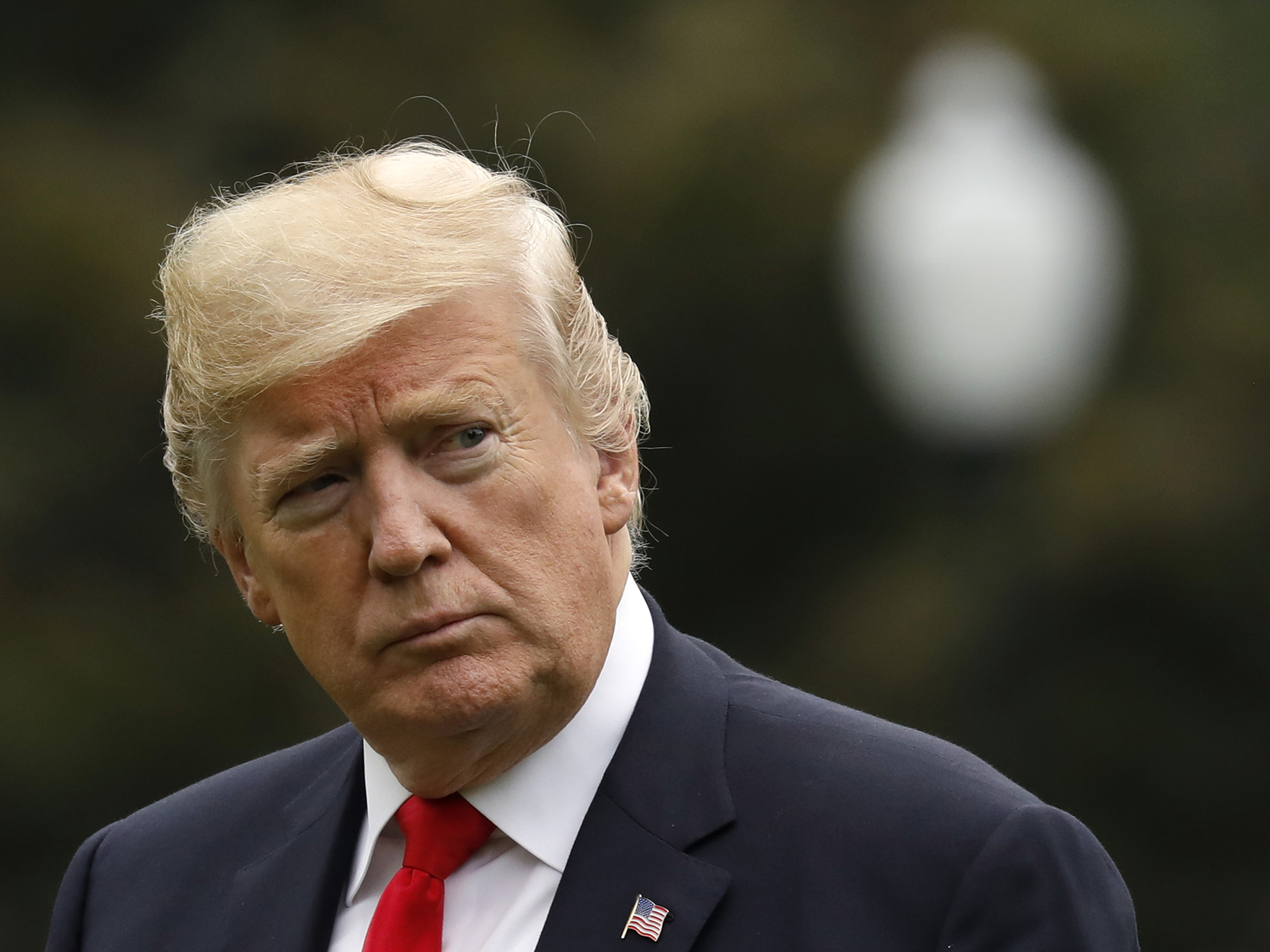New York is investigating whether President Donald Trump’s company falsely reported the value of his assets to secure loans and get tax benefits as claimed last year by Trump’s former personal lawyer and fixer, Michael Cohen, who has fallen out with his ex-boss.
New York Attorney General Letitia James said Monday that she took legal action to enforce seven subpoenas seeking thousands of documents and testimony from multiple witnesses. They include Eric Trump, one of the president’s sons and executive vice president of the Trump Organization, who refused to show up for a subpoena interview last month, she said.
The investigation is looking into transactions involving a neo-Gothic Trump skyscraper in Manhattan called 40 Wall Street, as well as the Trump International Hotel and Tower Chicago and a Los Angeles golf club, court records show. James, a Democrat, said a particular focus of the probe is an obscure property called Seven Springs on 212 acres outside New York City.
Cohen triggered the probe after he handed Congress a series of Trump financial records from 2011 to 2013, New York said in a filing in state court in Manhattan. The investigation is looking into whether Trump inflated the value of assets to secure favorable terms for loans and insurance, as well as whether he devalued other assets to avoid taxes, according to the filing.
The suit also names a Trump lawyer, tax attorney Sheri Dillon, who has already testified as part of the probe, according to the filing. She didn’t respond to emails or calls seeking comment.
James’ office “has not concluded its investigation and has not reached a determination regarding whether the facts identified to date establish violations of any applicable laws,” her office said in one of the court filings.
Trump attorney Alan Garten said in an email that the Trump Organization had done nothing wrong. He said the complaint is “simply a discovery dispute” that James has turned into a political assault by publicizing the matter on the first day of the Republican National Convention. The company has worked with the state attorney general in good faith “at every turn,” he said.
“As the motion papers clearly state, the NYAG has made no determination that anything was improper or that any action is forthcoming,” Garten said. “We will respond to this motion as appropriate.”
The White House didn’t comment.
The dispute comes as Trump is fighting subpoenas for his tax records and financial documents in a separate grand jury investigation led by the Manhattan district attorney.
In that case, the U.S. Supreme Court rejected Trump’s claim to be immune from state investigations while in office. A judge last week threw out the president’s lawsuit to block the subpoenas on the grounds that they were too broad. District Attorney Cyrus Vance Jr. has signaled that his probe goes beyond the hush payments to a porn actress that triggered the investigation.
Allen Weisselberg, the Trump Organization’s chief financial officer, has already testified as part of the attorney general’s probe, though his questioning in July was cut short when he was asked whether he’d testified before a federal grand jury, even though that testimony had already been reported, according to New York’s filing.
When Eric Trump backed out of his scheduled July 22 deposition with two days’ notice, his lawyers implied that the reason for doing so was that the questioning of Weisselberg went beyond the scope of a civil investigation, James said in the filing.
The Trump Organization has also refused to hand over documents to establish whether the forgiveness of “large portions of debt” related to Trump’s Chicago skyscraper around 2010 was ever recognized as income for tax purposes, according to the filing.
New York had earlier backed off its demand for such documents after the company said Weisselberg would testify under oath that the forgiveness was recognized, the filings says. But he ultimately testified he “had no first-hand knowledge of this fact,” the filing states, prompting James to renew the demand for the documents.
“The Trump Organization has declined to do so, and has failed entirely to present any argument why it should not,” the attorney general’s office said in the court filing.
The Trump Organization refinanced the $160 million loan on 40 Wall Street in 2015, according to the filing. “Information regarding the Trump Organization’s reporting of the value of 40 Wall Street is significant to the Attorney General’s investigation,” the state’s filing said, though the next sentence, which may explain the relevance, is redacted.
Tax deduction
Another area of focus is Seven Springs LLC, part of the Trump Organization. The company acquired the property in Westchester County in 1995 for $7.5 million, according to the AG’s filing. Trump tried to develop it as a golf course or subdivide it for residences between 1996 and 2014, the state said, though the efforts “failed or ceased.”
Trump then granted a so-called conservation easement on Seven Springs to take an income tax deduction based on the property’s lost development value, James’s office said. In 2016, Trump had the property valued by Cushman Wakefield Inc. at $56.6 million, with the valuation used to claim about $21.1 million in tax deductions for donating a conservation easement for the 2015 tax year, the attorney general said. The state redacted a paragraph that outlines why the valuation is relevant to the probe.
New York also issued multiple subpoenas to Cushman Wakefield, the appraisal firm the Trump Organization used for several projects, including to determine the value of the conservation easement for Seven Springs for tax purposes, according to the filing. The Trump Organization initially objected on privilege grounds, but reversed course when James threatened to sue to enforce the subpoenas in December, the filing says.
Eric Trump is president of Seven Springs LLC, according to the filing.
“Eric Trump’s categorical refusal to appear is unlawful, and he should be compelled to testify,” James said in the court filing.
— With assistance from Jordan Fabian